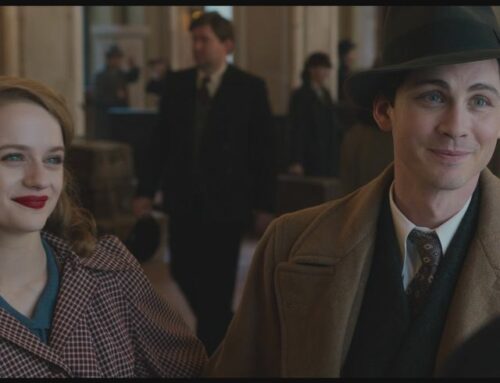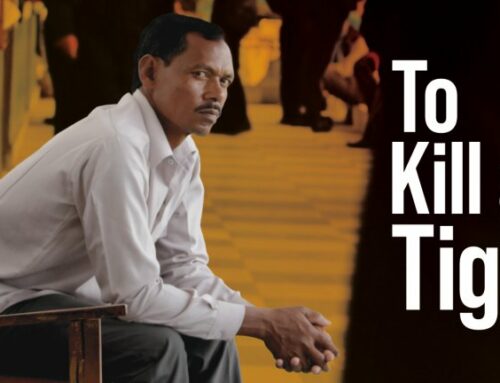In a season that features at least one remarkable presidential portrayal–here comes another, and this one definitely the wackier. An Irish/Englishman playing Lincoln is one thing, but America’s unofficial court jester and one time king of Caddy Shack is another kettle of acting entirely. Once you get over the shock of seeing Bill Murray as Franklin Delano Roosevelt, however, you’re on your way to an eye-opening film about a weekend in June 1939, when the King and Queen of England came to visit the 32nd President of the United States at his home in upstate New York: HYDE PARK ON HUDSON.
The filmmakers give us a chance to adjust to Murray as FDR by carefully orchestrating our initial meeting. The first time we see him, he’s seated behind a desk, in shadow, in long shot, which gradually moves in to a medium shot, and then a moderate close up. We’re not the only ones inching closer to the President. His neighbor and 6th cousin “Daisy” played by the splendid Laura Linney has just been summoned to his library, and she is cautiously making her way toward a man with a cigarette holder between his lips and his stamp collection on his desk.
As soon as Murray opens his mouth and the first patrician syllables spill out, I was sold. As Roosevelt, he’s disarmingly warm, mischievously blunt, and doing his seductive best to put his guest at ease. Murray has slid effortlessly into the role, using his sly humor and the best deadpan in the business to advantage here. The great comedian conveys FDR as a somewhat happily hen-pecked charmer caught in a nest of women. It’s his mother’s house, his wife’s purview, his secretaries’ oversight of his schedule– but no one doubts that the beloved “Franklin” is running the show. He bears the chaos and his considerable authority as if amused, from a distance, nimbly going where most men fear to tread.
And so the King and Queen (wonderfully played by Samuel West and Olivia Colman) arrive in bumpkin-land. They’ve heard they’re headed for a poorly run house with a clumsy staff; it’s a circus all right, and we have front row seats. Trays of china spontaneously crash to the floor, FDR’s mother rants about serving cocktails to royalty, the quirky Eleanor (a very funny Olivia Williams) has planned a picnic featuring hot dogs and American Indians dancing on the front lawn. Their Royal Highnesses aren’t sure whether or not they’re being taken for a ride; it’s hilarious to watch the pair struggle between keeping a stiff upper lip and letting their hair down. They have no choice– they’ve come to implore America’s help for England on the eve of WW II.
What brings all of these characters together? Well, different things, which overlap, and which are the basis of the true story enacted here. The challenge of the screenplay is to knit these stories together, and it doesn’t quite succeed. Daisy’s blossoming relationship with the President is tentative at first; she’s not sure exactly why she’s there, except to keep him company. Linney plays it shy– not quite prim- and deeply self-possessed. Like FDR, she’s nobody’s fool.
But then her story takes a back seat to that of the royal visitors, and this is where the movie’s best scenes lie. At the heart of the film, there’s a very funny, almost tender sequence where a stuttering King George VI and a paralyzed President in a wheelchair (which the press has kept quiet (!) and the public has barely seen) find themselves communing over drinks in the middle of a moonlit night. As the older, wiser president breaks through the formalities and assuages the insecurities of the younger king, we are to understand that the root of FDR’s charisma and power is his humanity. This perfectly calibrated encounter is a thing of beauty.
The movie is simply, artfully shot– the scenery a tad too lush for upstate New York (it was shot in England) and the film gradually wends its way back to Daisy’s story. By this time, we’ve almost lost interest in her, whereupon a mistaged and melodramatic climactic scene yanks us back in. It’s a bit of a shock, but we, like Daisy and the royals ultimately succumb to the man, and the movie. I had no idea; for a man in a wheelchair– he sure got around.






Leave A Comment
You must be logged in to post a comment.